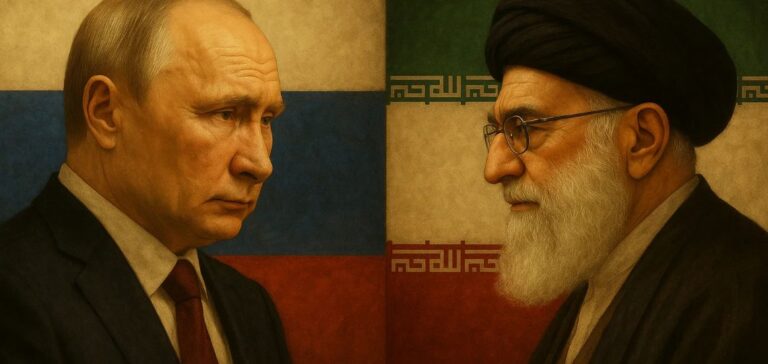The Russian Federation has reaffirmed its support for the ongoing talks between the United States and Iran concerning Tehran’s nuclear programme, calling for a “fair” agreement aligned with international legal standards. This position was made public following a phone conversation between Russian President Vladimir Putin and Iranian President Massoud Pezeshkian, according to a statement issued by the Kremlin on May 6.
A diplomatic process under Omani mediation
The negotiations, which began on April 12 under the auspices of the Sultanate of Oman, aim to prevent Iran from developing a nuclear arsenal. In return, Tehran seeks the easing of economic sanctions imposed by the United States and its allies. Iran continues to assert that its nuclear activities are strictly civilian.
The most recent session, scheduled for May 3, was postponed for “logistical reasons”, according to Omani diplomatic sources. No rescheduled date has yet been confirmed by the involved parties. Moscow has expressed its willingness to play an active role in facilitating an agreement that respects international legal principles, though no concrete details have been disclosed.
Dispute over regulatory conditions
On May 5, Iranian Foreign Minister Abbas Araghchi urged the United States to refrain from making “unrealistic” demands. This statement followed a phone exchange with the European Union’s High Representative for Foreign Affairs, Kaja Kallas. Iran has notably denounced pressure from the Israeli government, which is calling for a complete ban on uranium enrichment and the development of ballistic missiles.
Israeli Prime Minister Benjamin Netanyahu had already called on U.S. authorities on April 27 to adopt a tougher stance. Tehran considers these demands non-negotiable, referring to them as a red line in the ongoing discussions.
Reinforced bilateral framework between Moscow and Tehran
Relations between Russia and Iran have deepened since the onset of the war in Ukraine in February 2022. In January, the two nations signed a “comprehensive strategic partnership”, strengthening their coordination across several areas, including nuclear affairs.
Russia, holder of the world’s largest nuclear arsenal, is seeking to exert influence over a matter it views as strategic within the international balance of power. This direct involvement highlights the Kremlin’s intent to shape global nuclear regulation standards.






















